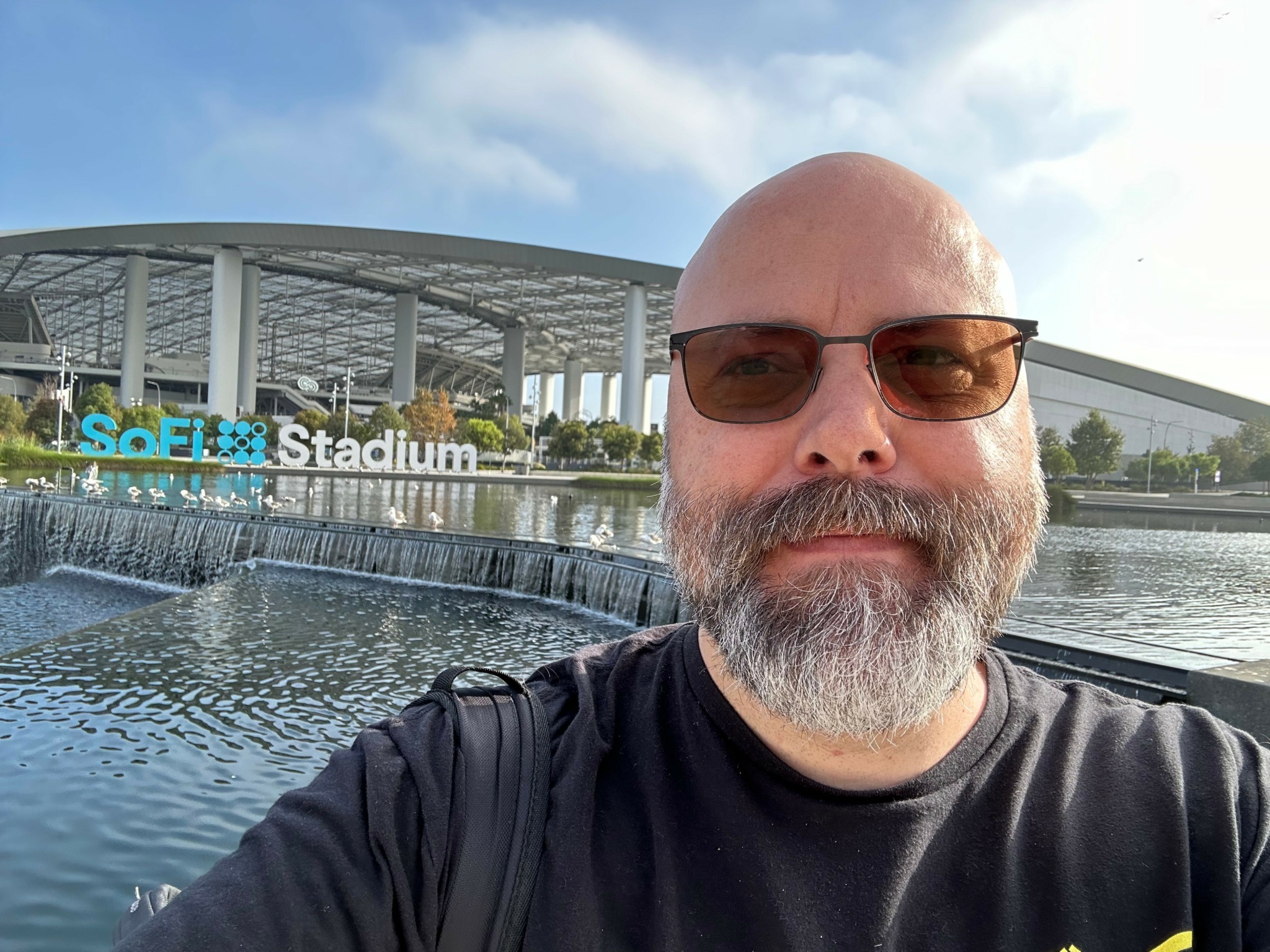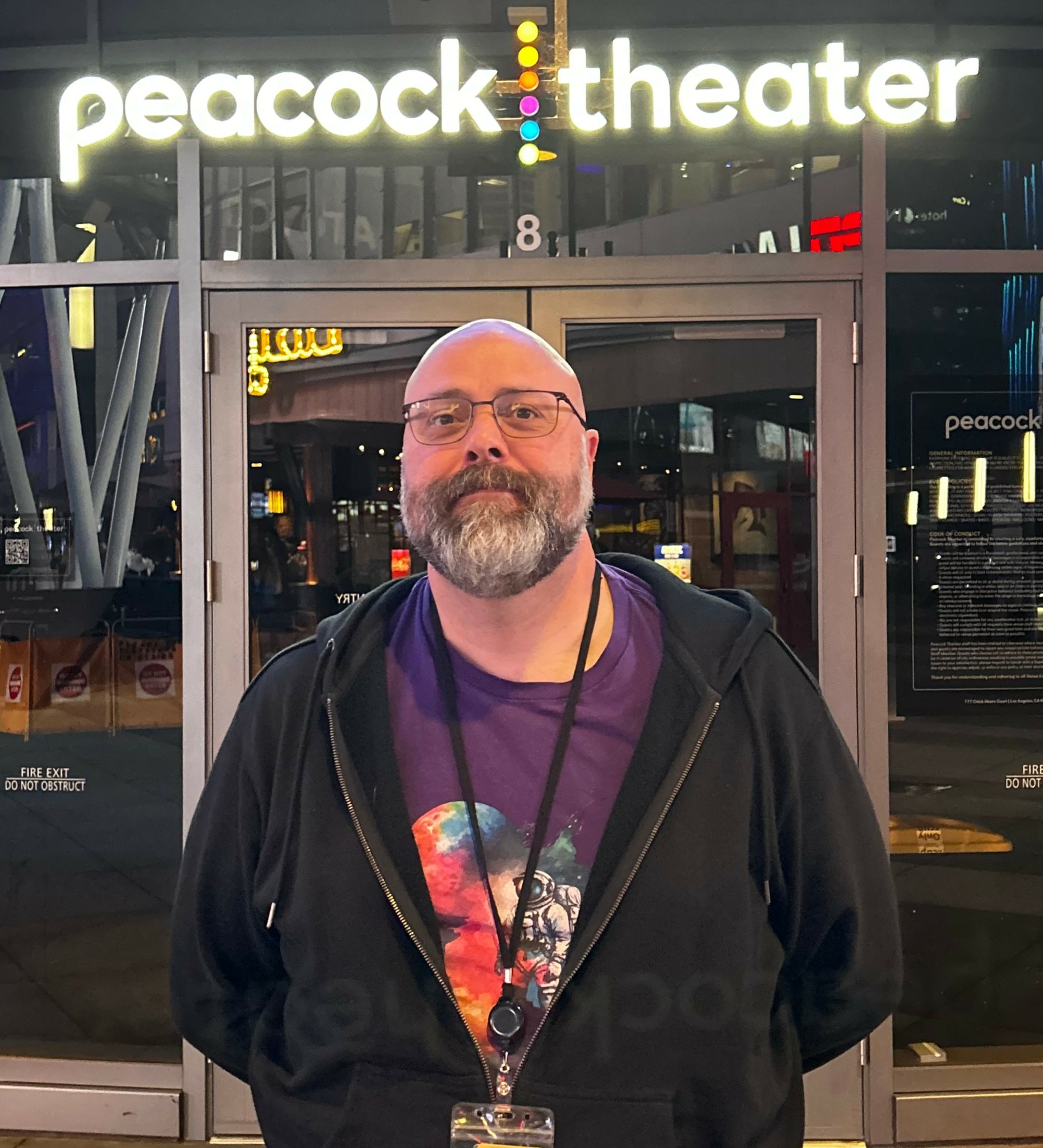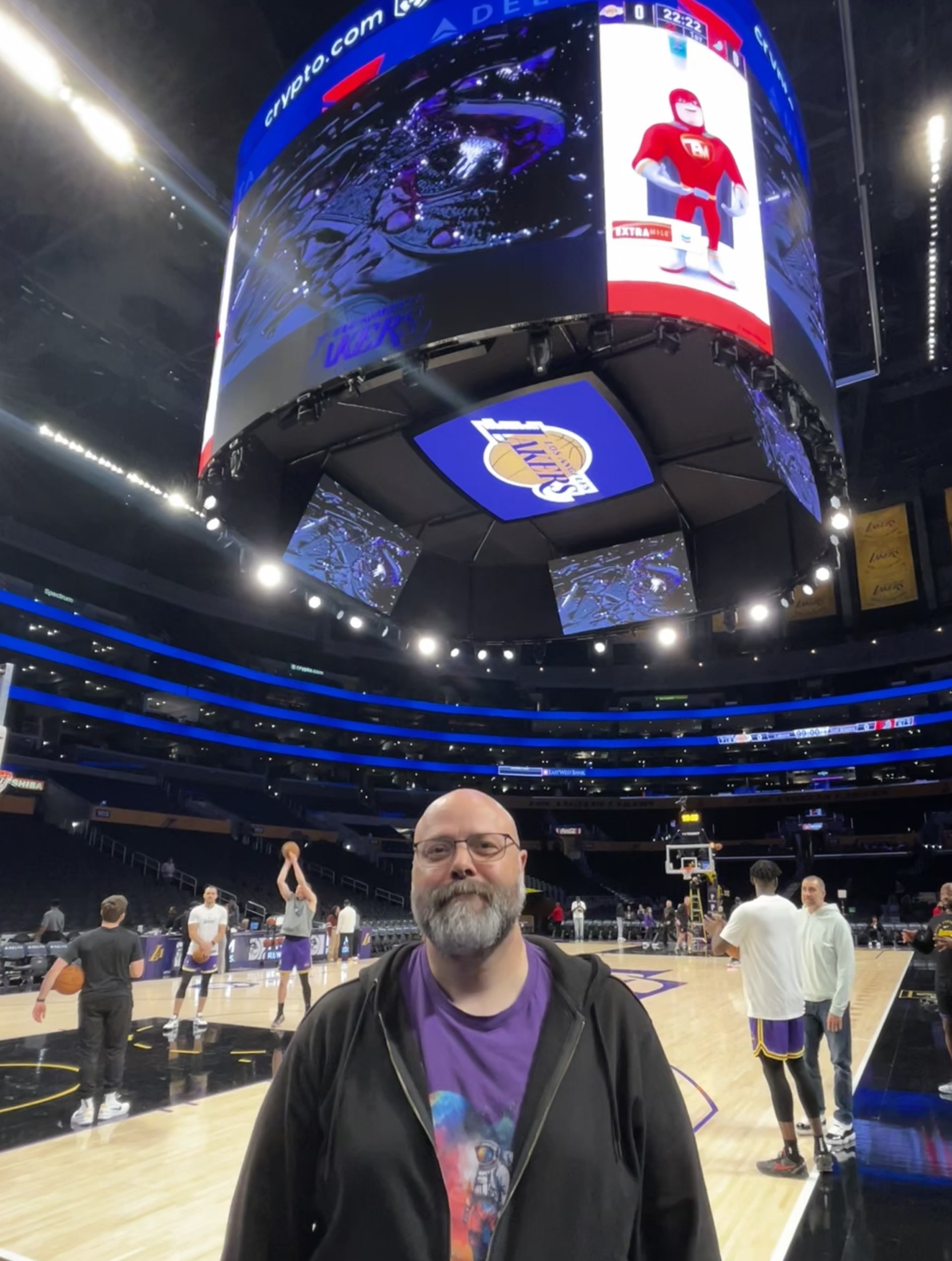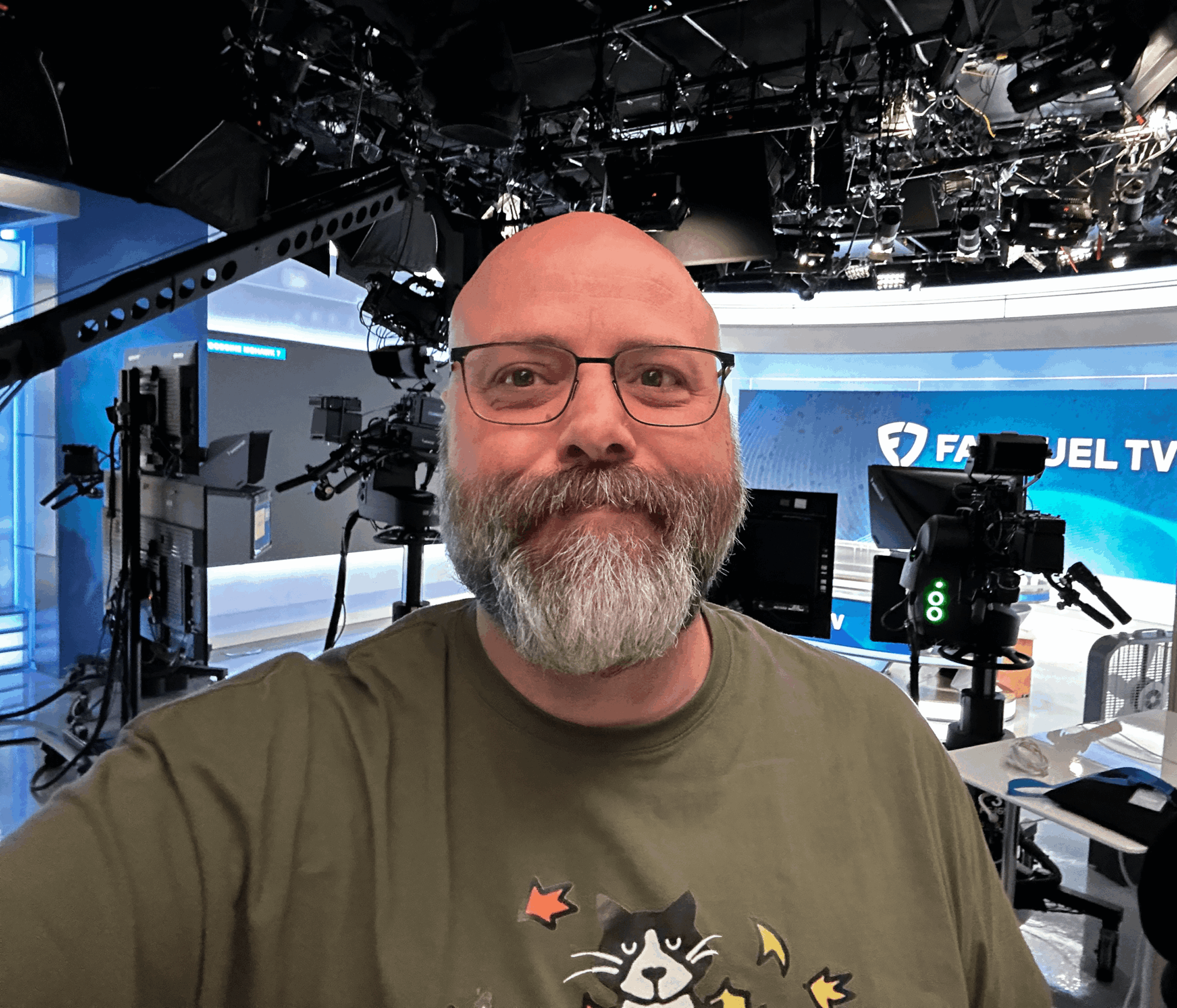We were lucky to catch up with John Powell recently and have shared our conversation below.
Hi John, thanks for joining us today. Can you talk to us about how you learned to do what you do?
When I think about how I got here, I can honestly say it’s been anything but a straight line. My expertise in live production and technical direction is built on curiosity, adaptability, and a deep love of storytelling. Whether it’s a live concert, a soccer match, or a corporate broadcast, every production is an opportunity to tell a story, in real time. That combination of preparation and spontaneity is what keeps me hooked. Along the way, I’ve been fortunate to work with iconic brands like the Dodgers, Fox, AEG, SpaceX, Yahoo!, FanDuel, and Spectrum. Each project has taught me something new about how to craft compelling moments under pressure.
I started in high school theater. Back then, I was just a kid who loved story and building things, and my carpentry skills made me a natural fit for set construction. The teacher running the program without other faculty, saw my passion and aptitude. He gave me opportunities to take the lead. I didn’t realize it at the time, but those early experiences (learning the rhythm of a live show, figuring out how to pace scenes, and adapting to inevitable last-minute changes) would lay the foundation for how I approach my work today.
That pattern of stepping up has repeated itself throughout my career. I’ve often found myself in roles that pushed me beyond my comfort zone, like the first time I operated a video switcher. If you’ve ever seen one, you know it can feel overwhelming, so many buttons and layers to figure out. Ultimately, it’s just another kind of computer interface. Once I understood the basics, I kept building on that knowledge. I’ve learned a lot on the job and from mentors who were willing to share their expertise. Even when collaboration wasn’t easy or some people were hesitant to teach, those moments still taught me valuable lessons like how to stay patient, adaptable, and focused on the bigger picture.
Storytelling in live production requires a unique balance of preparation and flexibility. You map out a plan, organize shots, graphics, and cues. You rehearse but you also leave room to adapt because live events don’t go as planned. Technical glitches, schedule shifts, or unexpected moments within the action often require quick decisions that can change the direction of the story. Over the years, I’ve learned to see these challenges not as obstacles but as opportunities to make the story even stronger. It’s about pacing and knowing when to let the action breathe, when to build tension, and when to deliver the payoff.
Live production doesn’t work without collaboration. I’ve leaned into a leadership style that values respect, compassion, and inclusivity. I’ve found that when everyone feels heard and supported, creativity and problem-solving come naturally. You never know who’s unique perspective will be the foundational perspective of great storytelling.
If I could go back, I’d tell my younger self to invest more time in connecting with people outside my immediate circle. Networking isn’t just about job opportunities, it’s about learning from others and gaining perspectives that can help you grow.
At its core, live production is about adaptability and problem-solving. Things will go wrong: equipment fails, cues get missed, or plans change at the last second. Staying calm and thinking on your feet is paramount. Also communication. No matter how many production elements I am juggling, I’m making sure everyone’s on the same page. It is what keeps the show running smoothly.
Recently, I’ve been channeling my experiences into something new: a podcast called Control Room Conversations. It’s my way of pulling back the curtain on live production and sharing what really goes into making these events happen. From the highs of a seamless broadcast to the lessons learned when things go sideways, I want to create a space where seasoned pros and curious newcomers alike can connect, learn, and feel inspired.
Whether I’m directing a soccer match at BMO Stadium, running the tech for a corporate event at Yahoo! Studios, or supporting a live concert at the Peacock Theater, every project is an opportunity to grow, to tell a story, and to create something meaningful.
If there’s one thing this career has taught me, it’s that learning never stops. There’s always a new challenge, a new technology, or a new way to collaborate. And that’s exactly why I love it.

Great, appreciate you sharing that with us. Before we ask you to share more of your insights, can you take a moment to introduce yourself and how you got to where you are today to our readers.
I’ve spent my career immersed in the world of live production, directing, and technical directing for a wide variety of events ranging from sports to live concerts to corporate broadcasts. My journey began in high school theater, where I first honed my skills behind the scenes. These foundational skills paved the way for my journey into television and live event production.
My professional work began in horse racing and local news, fast-paced environments where every moment counts. I learned the importance of precision, quick decision-making, and teamwork. Early experiences set the tone for my career: stepping into roles where there was a need and growing into them through hands-on learning and mentorship.
Today, I specialize in directing and technical directing, with expertise in live broadcast switching, multi-camera coordination, and creative problem-solving for productions of all sizes. Over the years, I’ve been fortunate to work with some of the most recognizable brands, including the Los Angeles Chargers, Yahoo! Studios, Los Angeles Dodgers, FanDuel, Los Angeles Lakers, Cosm, Los Angeles Galaxy, and Ross Video, to name just a few. From professional sports and space flights to major music tours, my goal is always the same: to create high quality productions that capture the heart of the story being told.
What sets me apart is a calm, inclusive leadership style. In an industry that thrives on high pressure and quick turnarounds, I’ve learned that collaboration, respect, and adaptability are key to success. I believe the best ideas emerge when every voice is valued, and I work to foster environments where technical excellence and creativity go hand in hand.
One of the most rewarding parts of my career has been mentoring others, just as I was mentored when I was starting out. Seeing colleagues and team members grow and succeed brings me a sense of pride and purpose. At the same time, I’m constantly driven by my own curiosity and a desire for continuous growth. Whether it’s mastering new technology, adapting to the demands of a unique production, or solving complex technical challenges, every project offers an opportunity to learn and push boundaries.
Through my podcast, Control Room Conversations, I’ve found a way to share this collaborative spirit more broadly. By pulling back the curtain on the challenges, triumphs, and problem-solving that happen behind the scenes, I hope to inspire curiosity and growth in both seasoned professionals and those just starting out.
For potential clients and collaborators, I want to emphasize my unwavering dedication to delivering exceptional results. My career is rooted in adaptability, curiosity, and a deep respect for the craft of live production. I’m excited to continue learning, solving puzzles, telling stories, and working with others to create productions that truly resonate.

What do you find most rewarding about being a creative?
The most rewarding part of being creative is knowing I’ve been a part of unforgettable moments that touch people’s lives. Whether it’s spotlighting a young girl who stole the show on the dance cam or highlighting a sports legend at the peak of their career, I have the privilege of turning those moments into memories that resonate long after the event is over.
Years down the road, when people reflect on those experiences, my work will be part of how they remember them, and that’s something I take a lot of pride in. It’s incredibly fulfilling to know I’ve contributed to stories that matter, both to the audience and to the people at the center of them.
Every project is an opportunity to share in those milestones, and I approach each one with gratitude, respect, and a drive to make the next moment even more impactful. It’s the combination of creativity, storytelling, and connection that makes this work so meaningful to me.

Do you have any insights you can share related to maintaining high team morale?
The key to managing a team and keeping morale high is open and honest communication. When you clearly share your goals and expectations, without ego, it creates an environment where your team feels empowered to own their roles and contribute their best work. It’s all about focusing on collective success, not individual recognition.
Just as important is making space to really listen. Your team members bring different perspectives and ideas, and often, their insights can make all the difference in a project’s success. Taking the time to hear their concerns, consider their suggestions, and have meaningful conversations doesn’t just elevate the quality of the work—it also builds trust and fosters collaboration.
When you prioritize clear communication and active listening, you create a supportive environment where everyone feels valued and motivated. That’s when the real magic happens, both in the team dynamic and in the work you produce together.
Contact Info:
- Instagram: https://www.instagram.com/controlroomconversations?igsh=NTc4MTIwNjQ2YQ==
- Linkedin: https://www.linkedin.com/company/control-room-conversations/
- Twitter: @ControlRoomConv
- Youtube: UC9gU7vgFa-MXN7QnA6I_owQ
- Other: https://www.linkedin.com/in/john-powell-1537336

Image Credits
Taurean Reynolds


